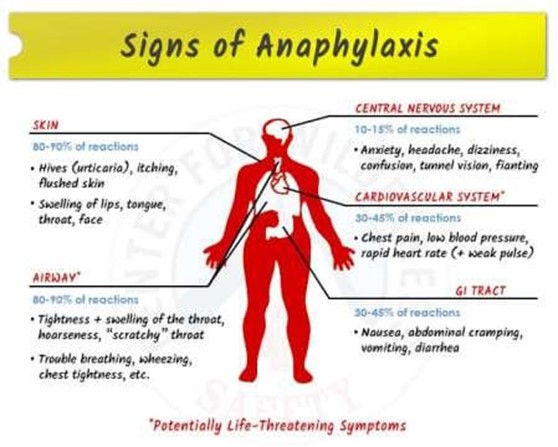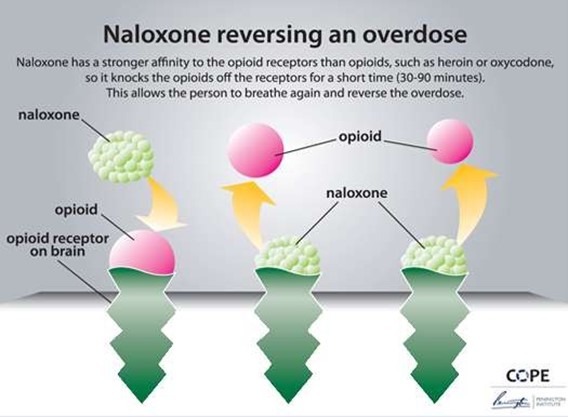A nurse is caring for a client who is receiving ceftriaxone intravenously.
Which of the following manifestations should the nurse identify as an allergic reaction?
Polyuria.
Hypotension.
Nausea.
Bradycardia.
The Correct Answer is B
This is because hypotension (low blood pressure) can be a sign of anaphylaxis, which is a severe allergic reaction that can occur with ceftriaxone.

Choice A is wrong because polyuria (increased urination) is not a common sign of an allergic reaction to ceftriaxone.
Choice C is wrong because nausea can be a side effect of ceftriaxone but is not specific to an allergic reaction.
Choice D is wrong because bradycardia (slow heart rate) is not a common sign of an allergic reaction to ceftriaxone.
Nursing Test Bank
Naxlex Comprehensive Predictor Exams
Related Questions
Correct Answer is B
Explanation

This is because naloxone is an opioid antagonist that rapidly reverses an opioid overdose by attaching to opioid receptors and reversing and blocking the effects of other opioids.
It can quickly restore normal breathing to a person if their breathing has slowed or stopped because of an opioid overdose.
Choice A is wrong because decreased nausea is not a therapeutic effect of naloxone.
Choice C is wrong because decreased blood pressure is not a therapeutic effect of naloxone.
Choice D is wrong because increased pain relief is not a therapeutic effect of naloxone.
Correct Answer is C
Explanation
The correct answer is Choice C.
Choice A rationale:
- This response is not appropriate because it is judgmental and may make the client feel defensive.
- It is important for the nurse to respect the client's right to make their own decisions about their health care.
- Telling the client what they should do can undermine their autonomy and potentially damage the nurse-client relationship.
- It's crucial for the nurse to remain objective and avoid imposing their personal opinions or beliefs onto the client.
Choice B rationale:
- This response is also not appropriate because it is using scare tactics to try to persuade the client to get the vaccine.
- This approach can be counterproductive and may further alienate the client.
- It's important to provide accurate information about the risks and benefits of the vaccine in a neutral and non-threatening manner.
Choice C rationale:
- This is the most appropriate response because it acknowledges the client's right to refuse the vaccine while still encouraging them to get it.
- It also demonstrates respect for the client's autonomy and validates their feelings.
- This approach is more likely to foster a positive nurse-client relationship and keep the door open for future discussions about vaccination.
Choice D rationale:
- This response is not accurate because the influenza vaccine is not mandatory for all clients before discharge.
- It is important for the nurse to provide accurate information to the client.
- Threatening the client with an against medical advice form is not appropriate and may be considered a form of coercion.
Whether you are a student looking to ace your exams or a practicing nurse seeking to enhance your expertise , our nursing education contents will empower you with the confidence and competence to make a difference in the lives of patients and become a respected leader in the healthcare field.
Visit Naxlex, invest in your future and unlock endless possibilities with our unparalleled nursing education contents today
Report Wrong Answer on the Current Question
Do you disagree with the answer? If yes, what is your expected answer? Explain.
Kindly be descriptive with the issue you are facing.
